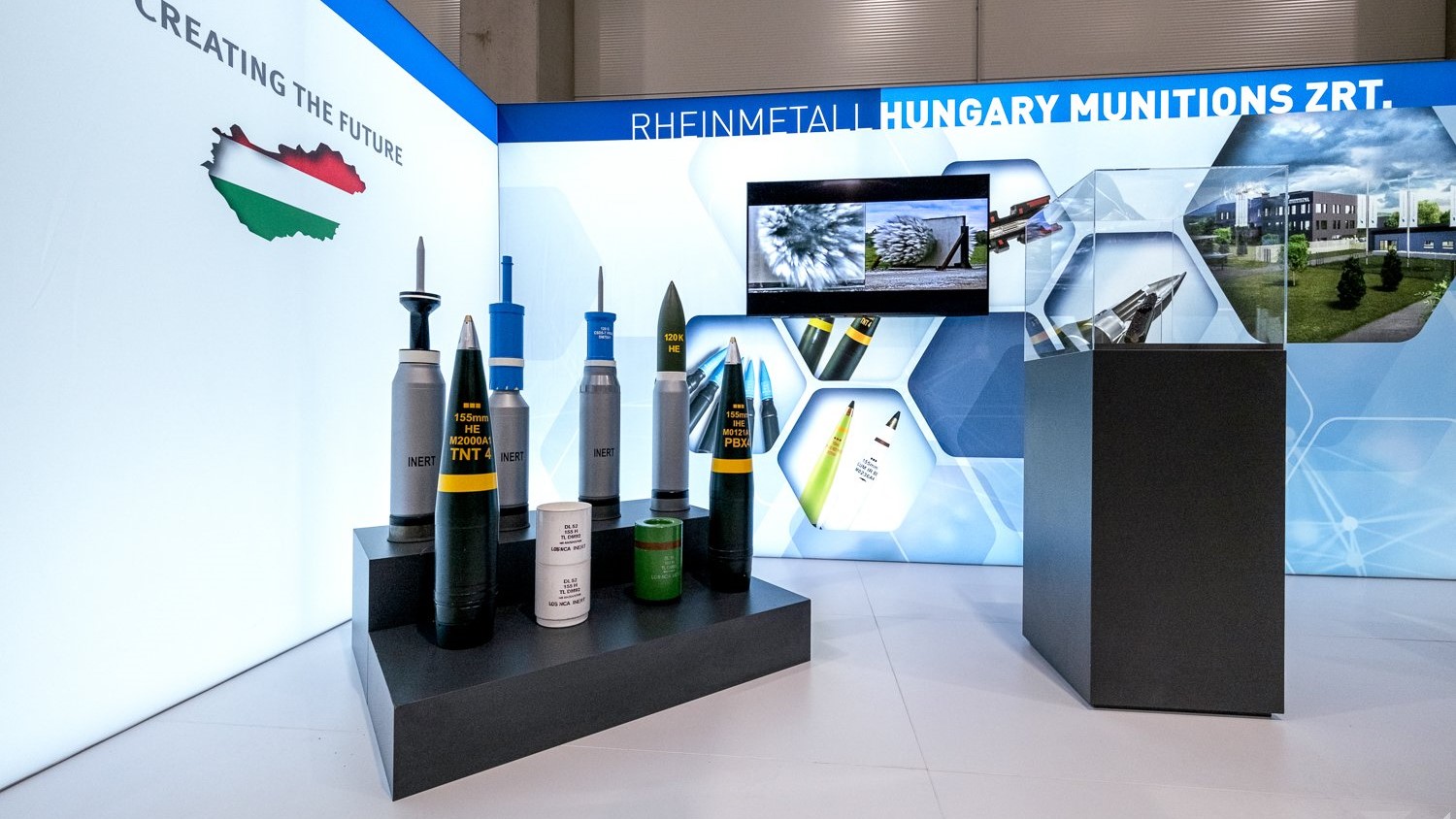At the ceremonial inauguration of the medium-calibre ammunition factory of the Várpalota Defence Industrial Complex on Monday, 29 July, Minister of Defence Kristóf Szalay-Bobrovniczky described the expanding munitions manufacturing facility as a crown jewel of the Hungarian defence industry, which will enable Hungary to become self-sufficient in 30-millimetre ammunition.
‘Since ancient times, the mathematics of war has been one of the most important aspects of warfare; its laws cannot be ignored,’ Minister Szalay-Bobrovniczky asserted before the test run of the production line specialized in 30-millimetre ammunition. He remarked that the ongoing Russo–Ukrainian war, now in its third year, has demonstrated the critical importance of having all necessary equipment available for combat. ‘High technology is indispensable but insufficient for successful combat. However, having ammunition ensures success,’ he summarized.
The Minister emphasized that Europe has recognized the need to rebuild its entire defence industrial capabilities, with a particular focus on ammunition production. ‘Not only the warring parties suffer from the constant need for replenishing ammunition supplies, but also the countries donating to the Ukrainian side, among which Hungary is not included,’ he stressed, underlining that
it is a clear political decision that Hungary does not send ammunition or weapons
to the ongoing war in the neighbouring country. He reminded that strategic ammunition reserves have significantly dwindled across the old continent, and the European defence industry market is struggling to keep up with the situation. ‘Hungary is not only at the forefront but ahead of our European Union friends in having planned a complex of this size—based on a well-thought-out strategy—well before the outbreak of the war, already in the mid-2010s,’ he highlighted. He stated that a defence industry is being developed in Hungary, with factories that are not only built but also producing. ‘These factories are new, attract high-tech knowledge, employ Hungarian labour, and significantly reduce our country’s military dependence on supply chains,’ he explained.
The minister pointed out that Hungary has already achieved the two per cent GDP defence spending level required by NATO for its member states last year. Szalay-Bobrovniczky recalled that less than a week ago he formally took delivery of the Hungarian Defence Forces’ first domestically manufactured Lynx KF-41 infantry fighting vehicle, produced at Rheinmetall’s factory in Zalaegerszeg. Another important manufacturing centre, the Várpalota Defence Industrial Complex, also in partnership with Rheinmetall, now boasts a thoroughly modern facility, he reported. The Minister explained that the relationship with Rheinmetall is seen as fair, attentive, and highly committed on both sides, mobilizing significant economic resources for both Hungarian and German strategic partners.
Kristóf Szalay-Bobrovniczky on X (formerly Twitter): “Ahead of Europe – new #Hungarian munitions factory strengthens our defence! 🟥⬜️🟩🛡️ Ensuring self-sufficiency in 30mm ammo for our Hungarian-made #LYNX IFVs, the Várpalota Defence Industrial Complex #boosts security and creates jobs. 🇭🇺 #Defenceindustry #MinistryOfDefense pic.twitter.com/00h0oFtYGm / X”
Ahead of Europe – new #Hungarian munitions factory strengthens our defence! 🟥⬜️🟩🛡️ Ensuring self-sufficiency in 30mm ammo for our Hungarian-made #LYNX IFVs, the Várpalota Defence Industrial Complex #boosts security and creates jobs. 🇭🇺 #Defenceindustry #MinistryOfDefense pic.twitter.com/00h0oFtYGm
Szalay-Bobrovniczky stressed that the 30-millimetre machine gun ammunition produced in the newly inaugurated plant could even be called ‘lynx feed,’ as
it is the ammunition for the turret machine guns of the Lynx infantry fighting vehicles,
and it is a key ammunition type in the armaments of several NATO member states. ‘Once production begins in this plant, Hungary will become self-sufficient in this type of ammunition, in this calibre,’ he underlined, noting that the plant initially provides jobs for fifty people, with several hundred more employed once production commences.
Armin Papperger, CEO of German defence industry group Rheinmetall, expressed gratitude for the support of the Hungarian government and praised the designers of the factory buildings and the contractors for their quality and speedy work. He stated that the German defence company would cooperate not only in manufacturing but also in utilizing the ammunition produced for sales with the Hungarian state. ‘There is indeed a significant demand for not only medium but also larger calibre ammunition, which we also plan to produce,’ he declared. According to Papperger, the plant’s capacity and productivity will significantly increase in the near future, thereby strengthening Hungary’s national sovereignty.
In her speech Várpalota Mayor Márta Campanari-Talabér recalled that a year and a half ago, in an innovative manner, a drone placed the foundation stone of the now inaugurated ammunition factory. ‘It is almost unbelievable that eighteen months later we can already be part of the inauguration ceremony. As I said then, and I reaffirm today: Várpalota is committed to the defence industry,’ she added. The mayor emphasized that the defence of Hungary is not possible without a defence industry, of which Várpalota is one of the most important pillars. ‘The city’s Sleeping Beauty-like economy needed to be awakened,’ she stated, highlighting that
the Hungarian government is providing 24 billion forints in state support for infrastructure developments
related to the large-scale investment, which will also include adjustments to the vocational training profile of the local secondary school and the implementation of utility and road development. ‘We are working so that many people feel locally that they are the beneficiaries of this investment,’ she added.
Related articles:








